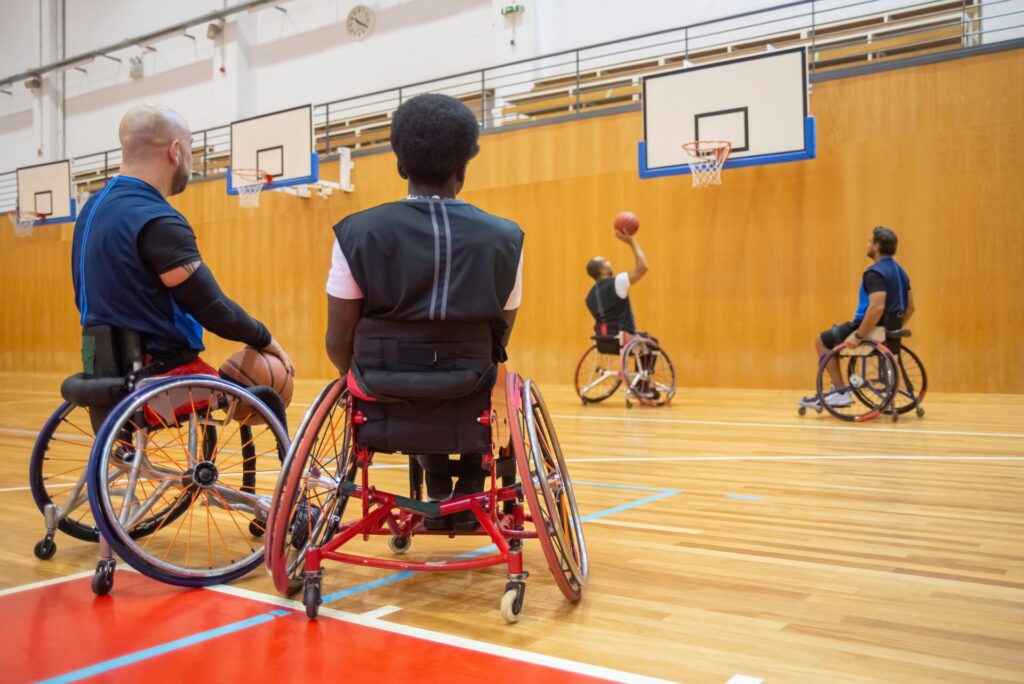
How often do you consider what you’re thinking, or tune in to how you’re talking to yourself? Everything in our lives, and in particular, our sport performance, can be affected by our internal dialogue.
Here, TrueSport Expert Kevin Chapman, PhD, clinical psychologist and founder of The Kentucky Center for Anxiety and Related Disorders, explains how to catch yourself in negative self-talk moments and how to create new positive self-talk behaviors that help improve your outlook and your sport performance.
1. Understand Your Emotions
Emotions have three parts. “Emotions are made up of thoughts, physical sensations, and behavior. Thoughts are essentially our self-talk, or what you say to yourself,” says Chapman.
“Physical sensations are the feelings in your body—your heart beating quickly, feeling hot or chilled, even what you can see, hear, smell, feel, or taste. And finally, there’s your behavior, which for an athlete is how you respond to different things during a game.”
2. See All Three Parts as a Whole
The fact that emotions are made from three different inputs is important to understand when thinking about self-talk, because it means that self-talk is just one part of the puzzle. And that can be a helpful thing!
“The foundation to improving self-talk is recognizing this triad of emotion,” says Chapman. “Your self-talk is just one part of it, but it’s an important piece: It’s the glue that brings everything together. What I say to myself will increase or decrease the physical arousal in my body, which leads to a good or bad performance.”
Once you recognize how thoughts influence feelings and feelings influence thoughts, or how thoughts influence behaviors and behaviors influence thoughts, you can use this to make changes in your life.
3. Tune in To Your Self Talk
“We talk to ourselves frequently, but most of us are unaware of what we’re saying to ourselves,” says Chapman. “So, our first goal needs to be tuning into what we’re saying. Then, we can work on changing that dialogue to be more positive. It’s important to identify self-talk in three areas: Before competition, during competition, and after competition.”
The next time you’re in practice or a game, try to tune into your thoughts, and afterwards, take a few notes of phrases you remember thinking.
4. Figure Out Your Tendencies
“We have to carefully identify and inspect the right things to say to ourselves that work for us,” says Chapman. “After identifying what you tend to say to yourself throughout practices and competitions, you can decide what to say instead.”
When you’re taking that inventory of how you speak to yourself, identify if:
- You’re asking yourself stressful questions, like, ‘What if I get pulled out of the game?’
- You’re yelling at yourself, like, ‘I can’t believe you missed that shot!’
- You’re putting yourself down, like, ‘How can I be so terrible? I never want to play this game again. I’m the worst athlete on the team.’
Write down as many of these thoughts as you can remember from a couple of competitions.

5. Script Your Self-Talk
“Not only are the top elite athletes aware of what they’re saying to themselves at all times, they also carefully, deliberately select what they’re going to say to themselves in advance,” says Chapman.
How can you shift your self-talk to be more positive? It starts by having a few scripts in mind, based on your common self-talk, before you’re in a performance situation. “Once you know what your common negative self-talk tendencies are, you can start thinking of new self-talk phrases to use instead. Make them specific to you.”
For example:
- Ask yourself a question that has a positive outcome, like ‘How you can make the most of this quarter of the game?’
- How can you be more process-oriented instead of angry at yourself for missing a shot? Is there a cue you can focus on instead? To replace angry thoughts, come up with process-oriented thoughts, like, ‘I’m going to follow through on my next shot.’
- Write out a list of reasons you love the game outside of performance, like spending time with friends on the team.
For post-game, Chapman suggests shifting your internal dialogue to answering one simple question: ‘What did I learn from this competition?’
6. Still Struggling? Focus on the Physical First
If you’re still struggling with your self-talk, remember that it’s just one part of your current emotion. So instead of trying to change your thoughts right away, focus your energy on what you can change about your physical sensations or your outward behavior. “There’s a reason coaches tell athletes to walk it off,” says Chapman. “One road to emotional change is behavioral change. If you get moving, you don’t have a choice but to feel better.”
Try jogging around the parking lot while focusing on your breathing and the sound of your shoes hitting the pavement before getting in the car to go home from a bad game, as it will help change your physical sensations as well as your behavior. This will likely shift your self-talk too.
7. Practice Makes (Almost) Perfect
Improving self-talk takes time, and you will experience setbacks as you work on your internal dialogue. Even tuning into your self-talk takes a lot of practice, and changing it is going to be a long-term process. Don’t be upset if you catch yourself backsliding, says Chapman. Even the greatest athletes have moments where they struggle to control their inner narrative. What matters more is recognizing those negative thoughts, moving through those moments, and working to shift them as quickly as possible.
8. Notice How Your Self-Talk Changes Your Life
Finally, your self-talk won’t just improve your performance in your sport. Having more positive, solution-oriented self-talk will improve your ability to take a test or do a presentation in class with less stress. It makes it easier for you to handle job interviews, arguments with friends, and disagreements with parents. It’s a skill that will improve every area of your life, says Chapman.
Takeaway
References
TrueSport. (2024, May 1). 8 Ways to Improve Your Self-Talk for Better Performance. Retrieved from https://truesport.org/mental-wellness/8-ways-improve-self-talk/


